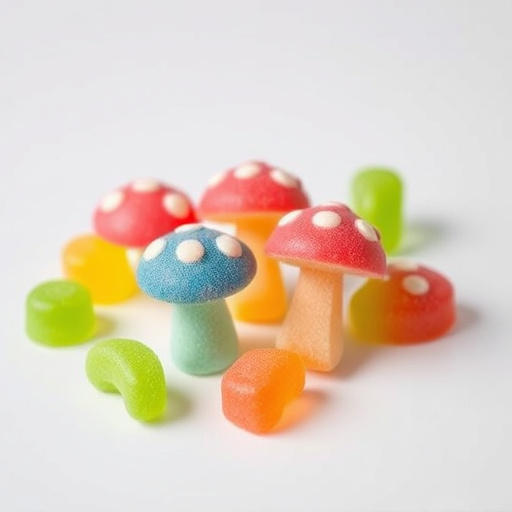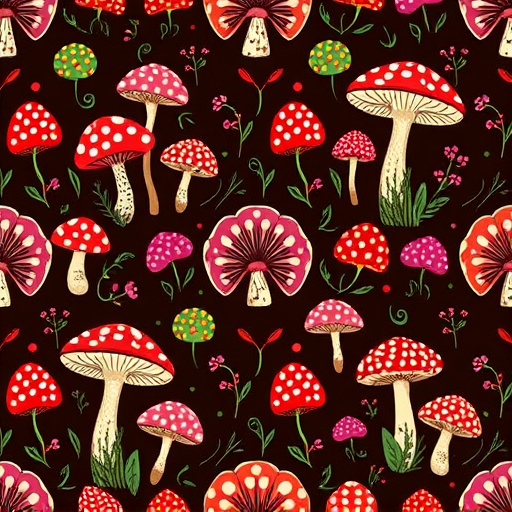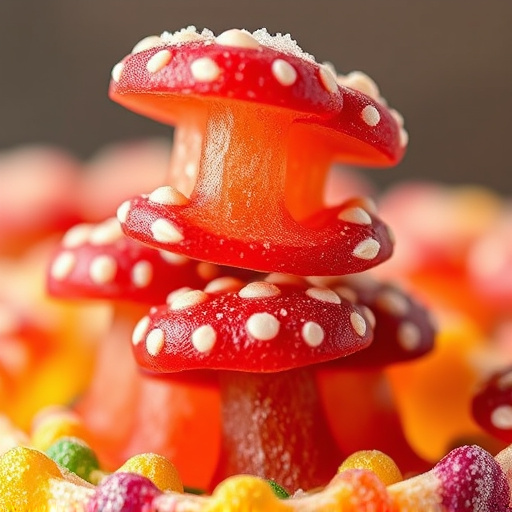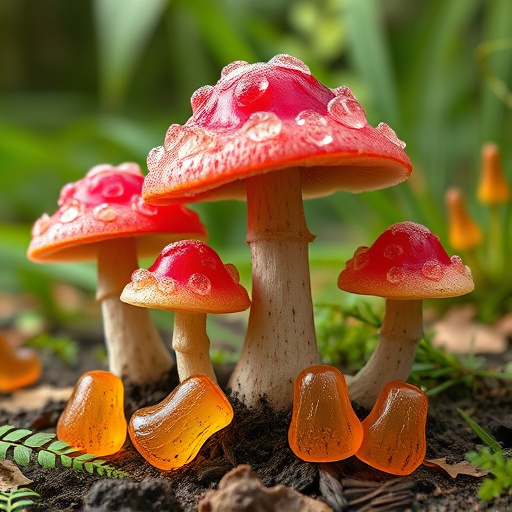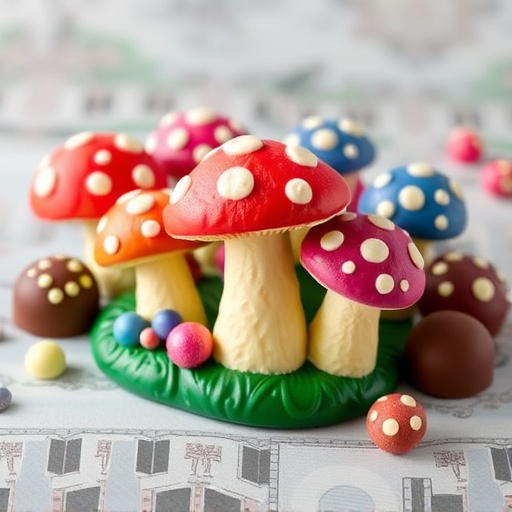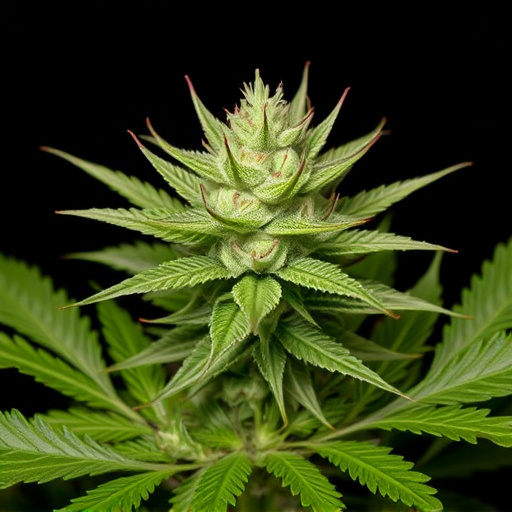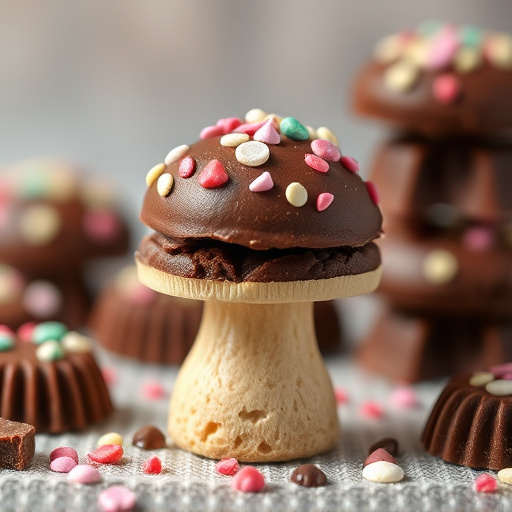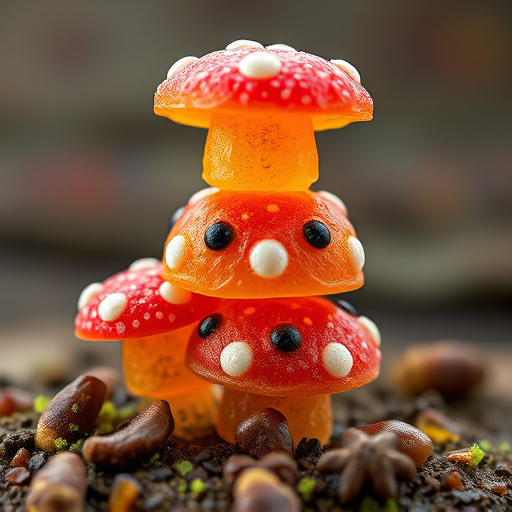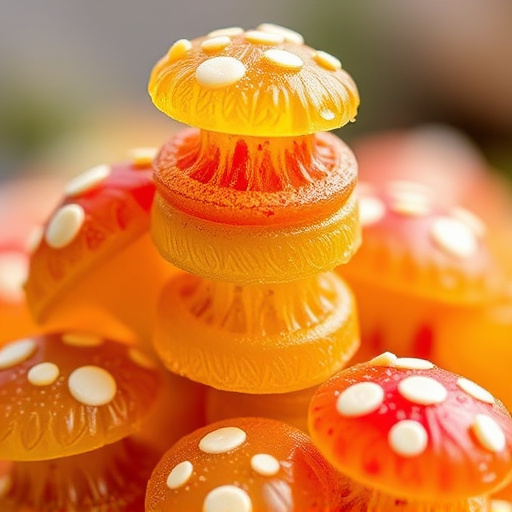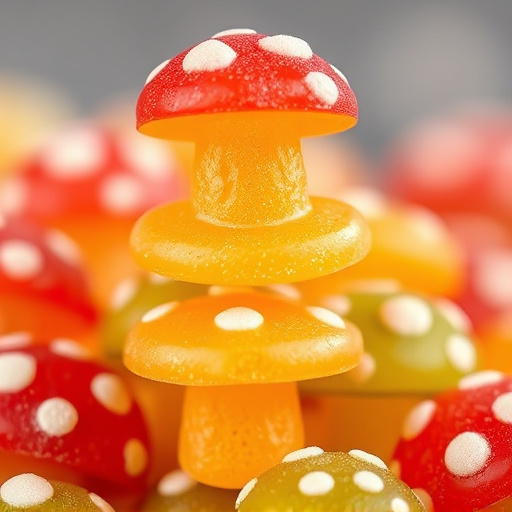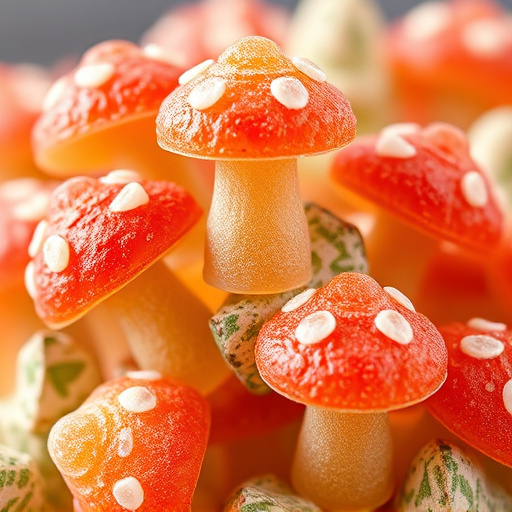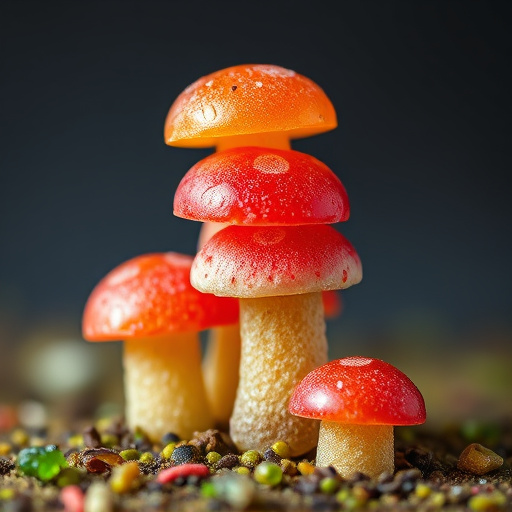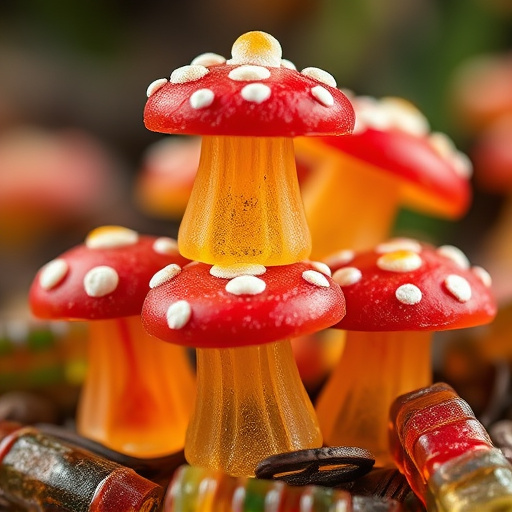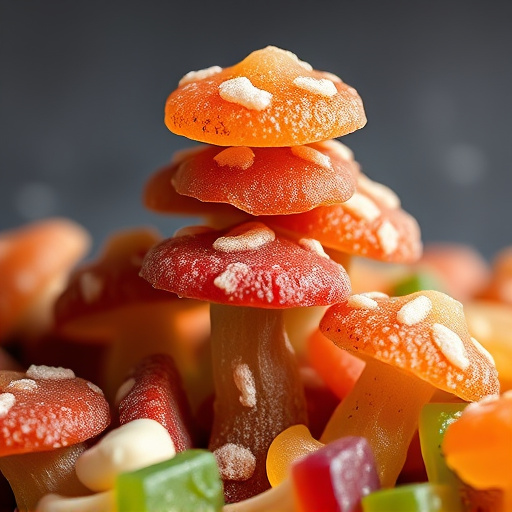Magic Mushroom Gummies, enriched with psilocybin, indirectly boost dopamine levels by interacting with brain serotonin receptors. This mechanism not only induces altered consciousness, creativity spikes, and intense emotions but also holds therapeutic promise for conditions like depression, anxiety, and addiction. However, they carry risks such as temporary anxiety, paranoia, hallucinations, and disorientation; long-term effects are unknown. Consulting healthcare professionals before use is crucial.
Discover the intriguing world of Magic Mushroom Gummies—a novel way to experience the effects of psilocybin, the active compound found in magic mushrooms. This article explores how these edible treats interact with dopamine levels in the brain, delving into both the potential benefits and risks of their consumption. From psychological therapy to recreational use, learn about the science behind this trendy trend and its impact on modern culture.
- Magic Mushroom Gummies: An Overview
- The Science Behind Dopamine and Magic Mushrooms
- Potential Benefits and Risks of Consumption
Magic Mushroom Gummies: An Overview
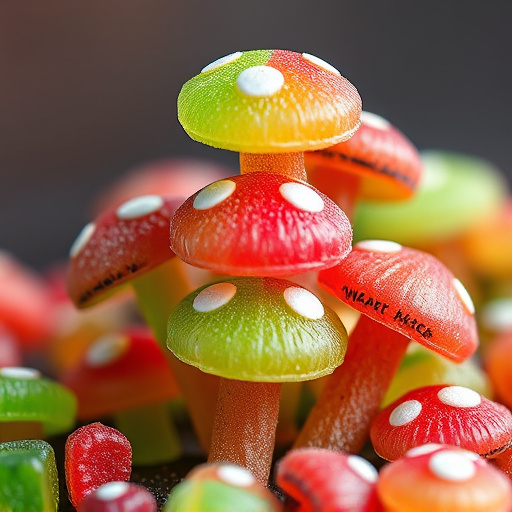
Magic Mushroom gummies are a modern twist on traditional psilocybin mushrooms, offering a convenient and often more palatable way to experience their effects. These edible treats contain psychotropic compounds similar to those found in natural mushrooms, notably psilocybin and psilocin, which interact with serotonin receptors in the brain. When consumed, they can induce altered states of consciousness, enhanced creativity, and profound emotional experiences.
One notable aspect of magic mushroom gummies is their potential impact on dopamine levels. Dopamine is a neurotransmitter linked to pleasure, reward, and motivation. The psilocybin present in these gummies has been shown to stimulate dopamine release, which can contribute to the intense feelings of euphoria and heightened sensory perception often associated with the experience. This interaction with the brain’s reward system makes magic mushroom gummies a popular choice for those seeking spiritual or recreational experiences, offering both potential therapeutic benefits and unique perceptual shifts.
The Science Behind Dopamine and Magic Mushrooms
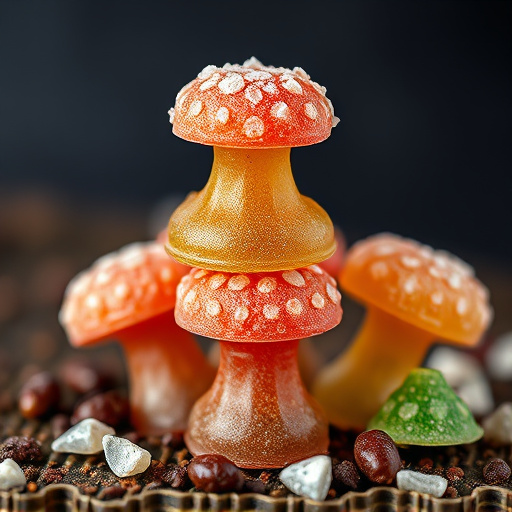
Magic mushroom gummies, like other edible forms of psychedelic substances, have a unique relationship with dopamine, a neurotransmitter key to pleasure, reward, and motivation. When consumed, these gummies can induce a release of dopamine in the brain, leading to heightened feelings of euphoria and altered perception. This effect is often sought after for its potential therapeutic benefits and recreational experiences.
The connection between magic mushrooms and dopamine levels is complex. Research suggests that psilocybin, the active compound in magic mushrooms, interacts with serotonin receptors in the brain, indirectly influencing dopamine activity. This interaction can temporarily boost dopamine availability, contributing to the intense emotional and sensory changes associated with psychedelic trips. Understanding this science behind dopamine manipulation offers insights into the potential therapeutic applications of magic mushroom gummies in treating conditions like depression, anxiety, and addiction, where dopamine regulation plays a significant role.
Potential Benefits and Risks of Consumption
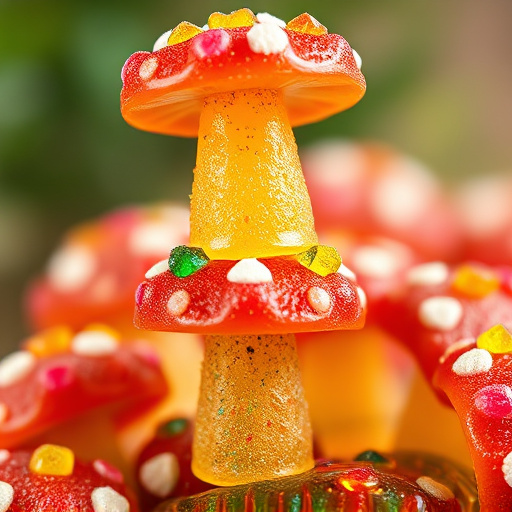
Magic Mushroom Gummies offer a modern twist on traditional psychedelic experiences, providing a convenient and potentially therapeutic way to consume psilocybin, the active compound found in magic mushrooms. While they promise various mental health benefits, such as reduced anxiety, depression, and increased creativity, it’s crucial to approach their use with caution. Research suggests that consuming Magic Mushroom Gummies may stimulate dopamine levels in the brain, leading to heightened mood, increased pleasure, and enhanced cognitive function. This effect can be particularly beneficial for individuals dealing with low dopamine activity, which is linked to various neurological conditions like Parkinson’s disease.
However, risks are associated with any substance, especially when involving altered consciousness. Potential drawbacks include temporary feelings of anxiety or paranoia, hallucinations, and disorientation. Long-term effects are not yet fully understood, making it essential for consumers to prioritize safety measures. Always consult healthcare professionals before trying Magic Mushroom Gummies, as individual reactions can vary.
Magic mushroom gummies represent a novel way to experience the potential benefits associated with psilocybin, the active compound in magic mushrooms. By enhancing dopamine levels in the brain, these edibles may offer therapeutic effects for various mental health conditions. However, it’s crucial to approach their consumption with caution due to potential risks and variable effects. Further research is needed to fully understand the scope of magic mushroom gummies’ impact on dopamine levels and overall well-being.
